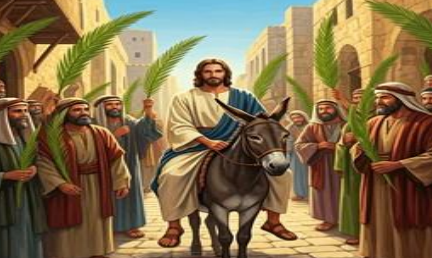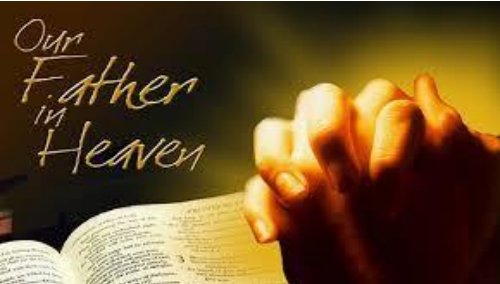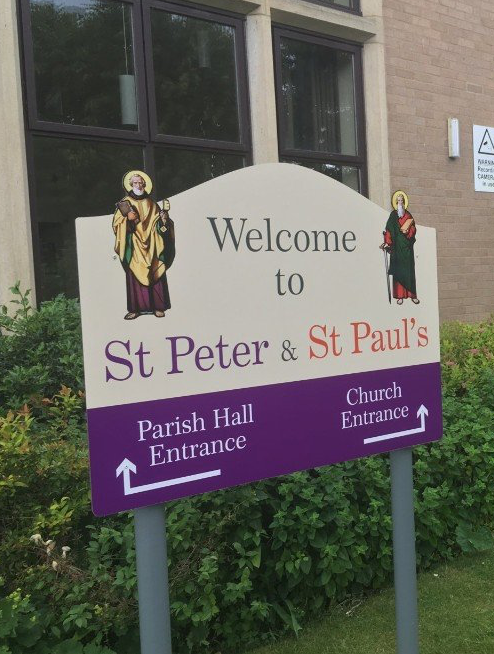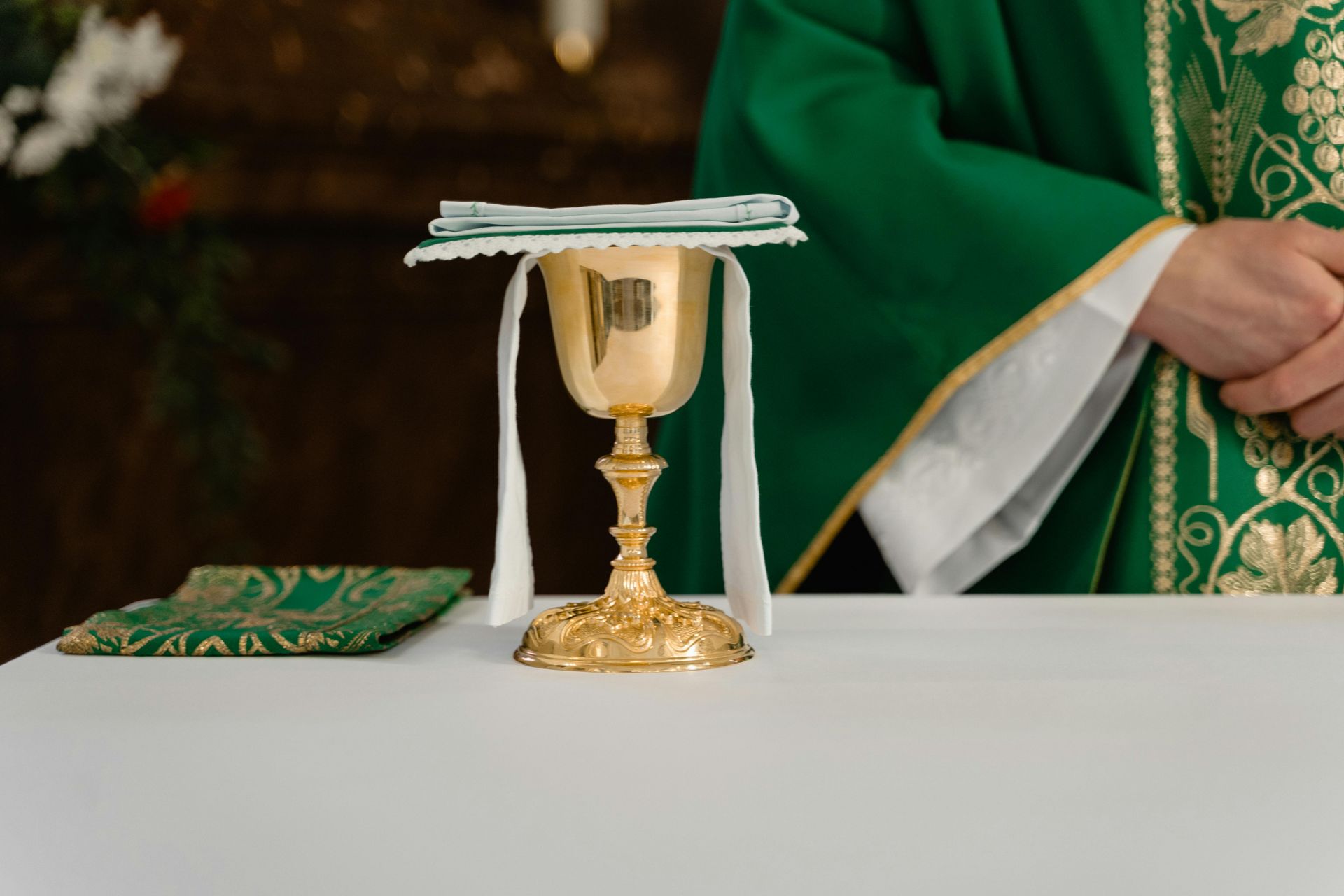
Riding on a borrowed colt, Jesus was hailed by the crowds as they shouted blessings and praise to God. Luke's Gospel is the only one to report the exchange between Jesus and the Pharisees as He enters Jerusalem. His response shows that this event, is part of a divine plan. Throughout Luke's Gospel we see that Jesus' words and actions proclaim the Kingdom of God and continues throughout his passion narrative. Jesus appears to be in total command of events at the Passover meal as he hands over the kingdom to his disciples. He welcomes them to the Passover meal announcing that this will be his last until the Kingdom of God is fulfilled. The disciples show little understanding of this kingdom and argue about who is the greatest. Jesus takes the opportunity to distinguish the meaning of leadership in the Kingdom of God from leadership seen in the world. He initiates a conversation with Simon and predicts his denial. Jesus then instructs his disciples to prepare themselves for the events that will follow. His words reveal an awareness of the challenges that all of them will face in the days ahead. As the disciples and Jesus enter the Mount of Olives, Jesus indicates the importance of the disciples' time in prayer, telling them that through prayer they will be able to face the challenges ahead. As he prays, Jesus is tested. In the garden, an angel is sent to prepare and strengthen him. Jesus is again in charge of the events and circumstances. Luke portrays Jesus as active and vocal throughout his passion. Only in Luke, when one of the disciples strikes the high priest's servant, Jesus heals the man. Jesus stops the disciples' protest against his arrest by noting that this is the “time for the power of darkness.” Jesus engages and responds when brought before the Sanhedrin; his words speak about the “power of God” that will bring about the reign of the Son of Man. When questioned by Pilate, Jesus responds with just one phrase; yet before Herod, Jesus refuses to speak. When Luke describes the Way of the Cross and Jesus' crucifixion, he calls to our attention many events that are not reported in the other Gospels. Throughout, Luke has paid heed to the women who accompanied Jesus. Now, on the road to Calvary, Jesus speaks to the women who walk with him. Only Luke reports Jesus' words of forgiveness spoken from the cross. And only Luke reports the dialogue between Jesus and the good thief. Finally, in contrast with the Gospels of Mark and Matthew, Luke reports no words of abandonment spoken by Jesus on the cross. Instead, Jesus, in full command until his death, commends his spirit to his Father and takes his final breath. As we meditate on the Cross, we ask again and anew what it means to make the statement of faith that Jesus, in his obedient suffering and dying, revealed himself to us as God's Son and brought to fulfilment the Kingdom of God.









